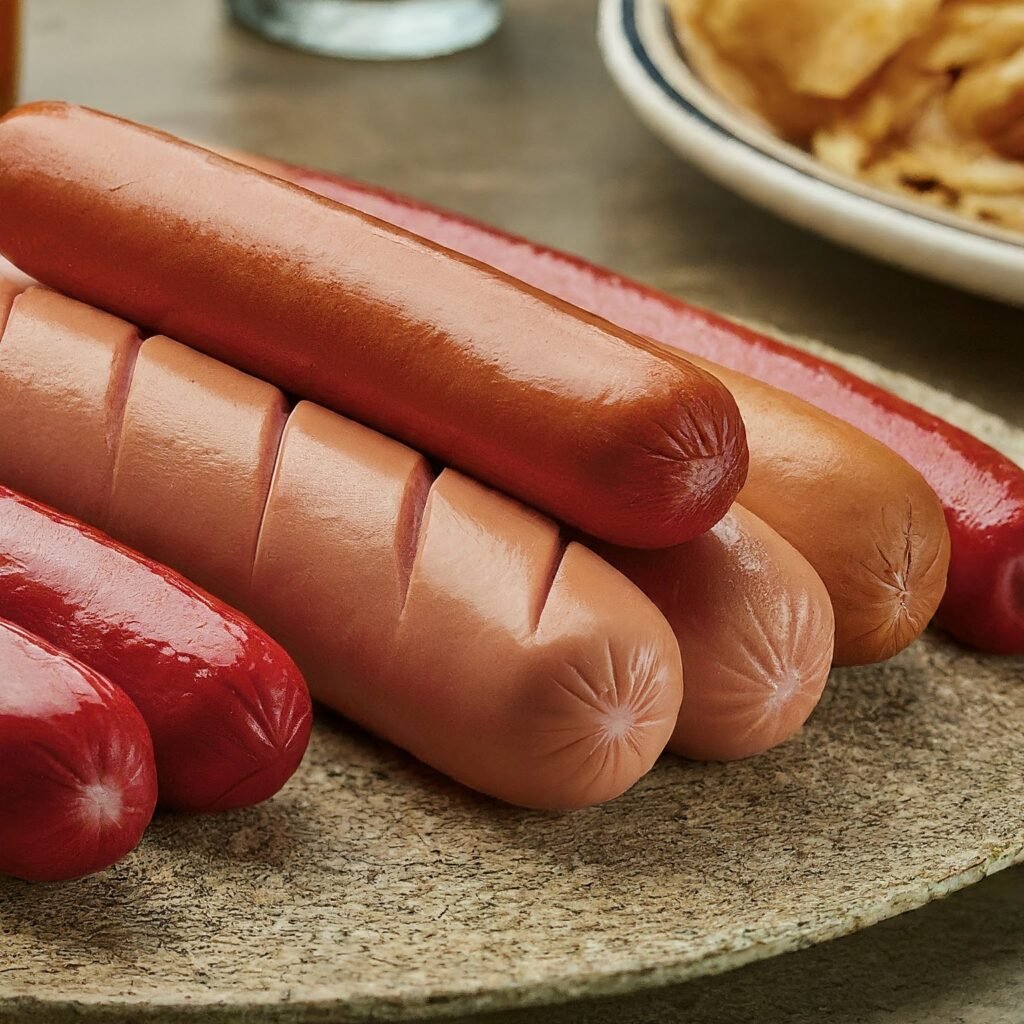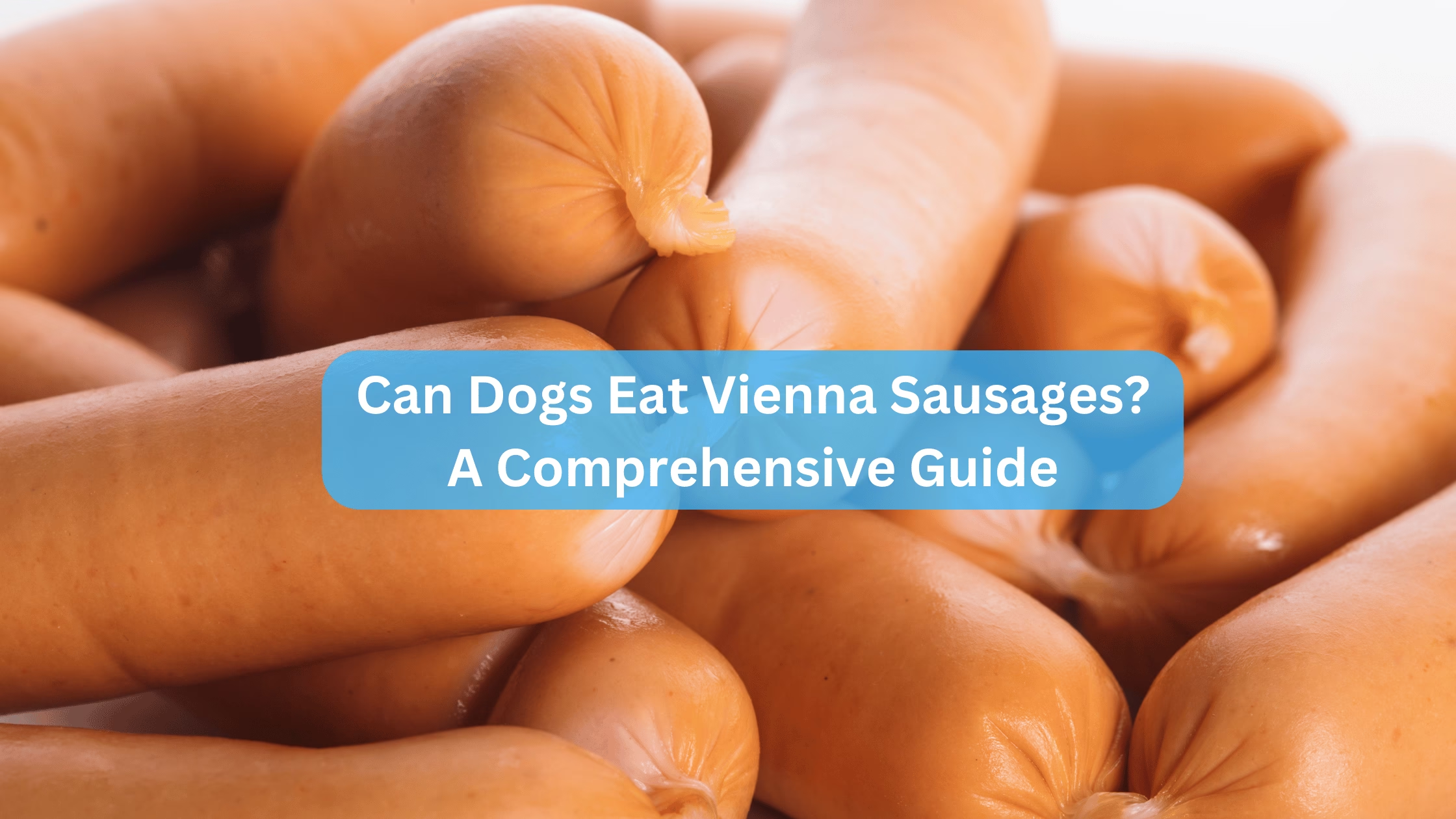As a dog owner, you may find yourself wondering, can dogs eat Vienna sausages? These small, flavorful sausages are a popular snack for many people, but when it comes to our furry friends, it’s essential to understand the potential benefits and risks.
In this article, we’ll explore the nutritional content of Vienna sausages, the risks associated with feeding them to dogs, and best practices for treating your pet safely.
Nutritional Overview of Vienna Sausages

Vienna sausages are primarily made from meat, which means they provide some protein. However, they also come with several nutritional drawbacks that dog owners should consider:
- High Sodium Content: Vienna sausages are often loaded with sodium, which can lead to health issues such as increased blood pressure and kidney problems in dogs. A single sausage can contain a significant percentage of a dog’s daily sodium requirement, which can be harmful, especially for dogs with pre-existing health conditions.
- Fat Content: These sausages can contain a significant amount of fat, which may contribute to obesity and pancreatitis, especially in dogs that are prone to these conditions. High-fat diets can lead to inflammation of the pancreas, causing severe pain and digestive issues.
- Potentially Harmful Ingredients: Some brands of Vienna sausages may contain seasonings like garlic or onion powder, both of which are toxic to dogs. Even small amounts of these ingredients can lead to serious health issues, including hemolytic anemia.
Risks of Feeding Vienna Sausages to Dogs
While a small piece of Vienna sausage may not harm your dog, there are several risks associated with regular consumption:
- Digestive Upset: The high sodium and fat content can lead to gastrointestinal issues, including vomiting and diarrhea. Dogs have sensitive digestive systems, and introducing rich or processed foods can upset their stomachs.
- Pancreatitis: The high fat content can trigger pancreatitis in susceptible dogs, a serious condition that requires veterinary attention. Symptoms of pancreatitis include lethargy, abdominal pain, and loss of appetite, which can escalate quickly.
- Obesity: Regularly feeding high-calorie treats like Vienna sausages can contribute to obesity, which is a growing concern among pet owners. Obesity can lead to various health issues, including diabetes, joint problems, and heart disease.
- Toxic Ingredients: Some Vienna sausages may contain preservatives or flavorings that are harmful to dogs. Always check the ingredient list to avoid any toxic substances.
How to Safely Offer Vienna Sausages to Your Dog
If you decide to give your dog Vienna sausages as an occasional treat, here are some best practices to ensure their safety:
- Moderation is Key: Offer only small amounts of Vienna sausages, and make sure it’s an infrequent treat rather than a regular part of their diet. A good rule of thumb is to limit treats to no more than 10% of your dog’s daily caloric intake.
- Check Ingredients: Always read the label to avoid harmful additives or seasonings that could be toxic to dogs. Look for products that are free from artificial flavors, colors, and preservatives.
- Cook Them First: If you’re using canned sausages, consider boiling or grilling them without any seasoning to reduce sodium content. Cooking can also kill any harmful bacteria that may be present.
- Monitor Your Dog: After introducing any new food, watch for signs of digestive upset, such as vomiting or diarrhea. If your dog shows any adverse reactions, discontinue feeding them Vienna sausages immediately.
Healthier Alternatives to Vienna Sausages for Dogs
If you’re looking for healthier treat options for your dog, consider these alternatives to Vienna sausages:
- Lean Meats: Cooked chicken, turkey, or lean beef can be great protein sources without the added sodium and fat. Ensure that the meat is unseasoned and free from bones.
- Commercial Dog Treats: Look for high-quality dog treats specifically formulated for canine health. Many brands offer treats that are low in calories and made with natural ingredients.
- Fruits and Vegetables: Many dogs enjoy fruits like apples, blueberries, and bananas or vegetables like carrots and green beans as healthy snacks. These options are low in calories and high in nutrients.
What Should I Do If My Dog Eats Too Many Vienna Sausages?
If your dog consumes too many Vienna sausages, monitor them closely for signs of digestive upset, such as vomiting, diarrhea, or lethargy.
If your dog exhibits any severe symptoms or if you are concerned about their health, contact your veterinarian immediately.
They may recommend bringing your dog in for an examination or suggest at-home care.
Are There Any Long-Term Effects of Feeding Dogs Processed Meats?
Feeding dogs processed meats like Vienna sausages regularly can lead to long-term health issues, including obesity, heart disease, and pancreatitis.
Processed meats are often high in sodium and preservatives, which can negatively impact a dog’s overall health.
It’s crucial to limit processed foods in your dog’s diet and focus on whole, natural foods.
Can Puppies Eat Vienna Sausages?
It is best to avoid feeding puppies Vienna sausages or any processed meats.
Puppies have sensitive digestive systems, and introducing rich or processed foods can lead to gastrointestinal issues.
Instead, focus on a balanced diet formulated for puppies, which provides the necessary nutrients for their growth and development.
How Can I Tell If My Dog Is Having an Adverse Reaction to Vienna Sausages?
Signs of an adverse reaction may include vomiting, diarrhea, excessive thirst, lethargy, or changes in appetite.
If you notice any of these symptoms after your dog eats Vienna sausages, it’s essential to contact your veterinarian for guidance.
Can Dogs with Health Conditions Eat Vienna Sausages?
Dogs with pre-existing health conditions, particularly those related to the heart, kidneys, or pancreas, should avoid Vienna sausages due to their high sodium and fat content.
Always consult your veterinarian before introducing any new food into your dog’s diet, especially if they have underlying health issues.
What Are the Best Practices for Introducing New Foods to My Dog?
When introducing new foods to your dog, follow these best practices:
- Start with small amounts to see how your dog reacts.
- Monitor for any adverse reactions or digestive upset.
- Gradually increase the amount if no issues arise.
- Always consult your veterinarian for personalized advice.
Also Read: Can Dogs Eat Chicken Broth? A Comprehensive Guide
Also Read: Can Dogs Have Glazed Donuts? A Comprehensive Guide
Conclusion: Can Dogs Eat Vienna Sausages?
In conclusion, while dogs can eat Vienna sausages, it’s essential to do so sparingly and with caution.
The high sodium and fat content, along with potential harmful additives, make them unsuitable for regular consumption.
Always consult with your veterinarian if you have concerns about your dog’s diet or health.
By being informed and cautious, you can safely treat your dog while ensuring their overall well-being.
Sources:
- https://animalgator.com/can-cats-and-dogs-eat-vienna-sausages/
- https://www.masterclass.com/articles/can-dogs-eat-vienna-sausages
- https://www.rootsyliving.com/can-dogs-eat-vienna-sausages/
- https://www.justanswer.com/dog-health/g7isv-ate-small-vienna-sausages-two.html







